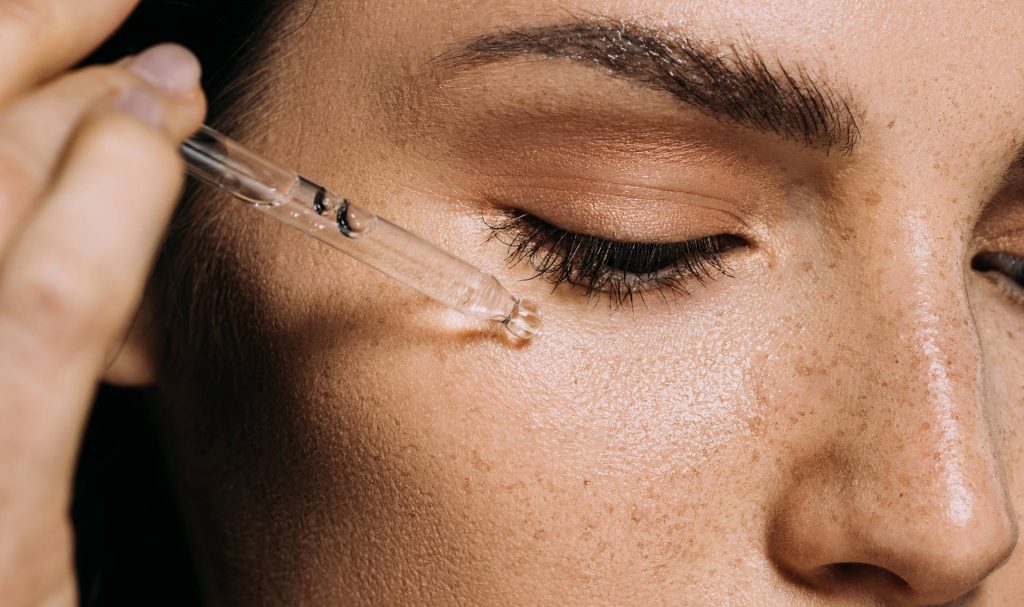Vitamin C serums are legendary for a reason: They really work. Uneven skin tone, rough texture, fine lines, acne scars, general dullness — you can name just about any common complexion concern and there’s a good chance that vitamin C (and the skin-care products it’s featured in) is a recommended treatment. How does the ingredient work on the skin, though? Are the brighter, smoother results thanks to the same potent antioxidant found in the orange juice you drink when you have a cold?
Given that interest about the ingredient is seemingly at an all-time high, we felt a deeper dive into the wonders of vitamin C was warranted. We consulted the experts to learn all about what really makes vitamin C such a sought-after skin-care ingredient, as well as the best ways to reap its many benefits.
First off, what is vitamin C?
As far as your skin is concerned, vitamin C is “a potent antioxidant that can neutralize free radicals,” explains board-certified dermatologist Patricia Wexler. “Because of its antioxidant properties, vitamin C aids in your skin’s natural regeneration process, which helps your body repair damaged skin cells.”
So, in the same way that consuming antioxidant-rich foods aids your body in fighting off free radicals, topical antioxidants do the same for your skin by helping to offset daily aggressors like UV damage and exposure to air pollution. Quick refresher course on antioxidants: They prevent or reduce damage to our cells by neutralizing the production of highly reactive molecules called free radicals. In other words, antioxidants help keep our body and our skin cells healthy.
This free-radical fighting power isn’t just important for helping to keep signs of premature aging at bay. In neutralizing these free radicals, vitamin C may also help protect skin from precancerous changes caused by UV exposure, Joshua Zeichner, the director of cosmetic and clinical research at Mount Sinai Hospital in New York City, previously told Allure.
How else does vitamin C benefit the skin?
Amazingly, vitamin C’s skin-saving benefits aren’t limited to its antioxidant status. It has plenty of other skin-healing properties that make it worthy of a permanent place in your medicine cabinet. For one, because it’s highly acidic, when vitamin C is used topically “the skin is triggered to heal itself by accelerating the production of collagen and elastin,” explains New York City-based dermatologist Howard Sobel. Remember: Collagen and elastin are both naturally occurring protein fibers that help keep skin plump and firm. So, in helping to promote collagen production, topical vitamin C can help prevent premature aging of the skin.
Another cool thing about the ingredient: It contains a property that inhibits your skin’s melanin production, which is what causes skin discoloration like dark spots and hyperpigmentation, Wexler explains. With continued topical use, vitamin C can help prevent dark spots from forming in the first place.
“It’s a superior brightening agent that works to fade brown spots without altering normal skin pigmentation,” Sobel adds.
How can you add vitamin C into your daily skin-care routine?
“The key is not the vehicle that vitamin C comes in, but the form of vitamin C that is being applied,” explains Kristina Goldenberg of Goldenberg Dermatology in New York City. The term to look for is ascorbic acid (also known as L-ascorbic acid), which is the most stable and effective form of vitamin C in skin care.
That said, all three dermatologists agree that the best vitamin C skin-care product to use is serum, because “serums are more effective than creams or toners,” says Wexler. Moreover, adding vitamin E into the mix is like a one-two punch of skin-saving goodness.
“Pure ascorbic acid has consistently been proven to be the most effective at penetrating the skin barrier,” Wexler says. “Vitamin C effectiveness [also] increases when combined with other antioxidants, such as vitamin E, [and] together they can double protection against free-radical damage.”
This is why you’ll very often find the two antioxidants formulated together in serums, such as SkinCeuticals’ legendary C E Ferulic (which won an Allure Best of Beauty Award three years in a row), or DermaDoctor’s Kakadu C 20% Vitamin C Serum with Ferulic Acid & Vitamin E.
You’ll also notice that both of these serum bottles are dark — and that’s on purpose. Vitamin C actually breaks down when it’s exposed to light or air, so dark glass bottles help maintain its stability (and therefore, efficacy). As a general rule, serums should be layered underneath your moisturizer.
If you’re new to using the ingredient on your skin, Sobel advises starting slowly. “It’s potent stuff, so you only need a few drops for each application,” he recommends. It’s best to start out with a low concentration and work your way up as your skin grows more accustomed to the ingredient.”
Five percent serums are generally gentle enough for sensitive skin, and you can go all the way up to 20 percent, which will work more quickly to brighten and improve skin pigmentation. Other forms of vitamin C you may come across in skin-care products include tetrahexyldecyl ascorbate, magnesium ascorbyl phosphate, and methylsilanol ascorbate.
Who should avoid vitamin C?
“Those with sensitive skin may have allergies or redness from vitamin C,” Goldenberg says. If you tend to have sensitive skin, she recommends starting with a lower concentration and also “trying a test area first to make sure that no allergy exists.”




